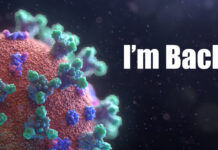The surge in numbers is attributable to two things: Increased testing and the high rate of infection in New York City. The New York Times is reporting that the state of New York now has 4,152 cases, but the Times appear to be behind as other outlets are quoting a number in excess of 5,600. This page from Syracuse.com gives NY-specific data and shows that out of 22,284 people tested, 5,638 have tested positive and 777 have been hospitalized. New York city alone is home of 3,950 cases and 26 deaths, followed by cases 798 in Westchester County and 372 in Nassau, the portion of Long Island closest to the city.
Globally, Italy topped 41,000 cases and 3,400 deaths while the total confirmed cases reported by Johns Hopkins is just over 247,000.
A Possible Treatment
The biggest Coronavirus new is not the increase in cases, which to some extent is to be expected, but that an anti-malaria drug has been shown to halt progression of the disease in patients, especially when given early and in combination with the antibiotic azithromycin, (which many may be familiar with as the ingredient in a Z-pack). A nice summary of the report is given by ZeroHedge, but I have not seen much coverage elsewhere as one would expect.
Granted, this is the results of a small study done in France, but it is peer reviewed, and anecdotal evidence from other countries appears to back up the clinical data. If further testing proves these early results are accurate, then we have a powerful new arrow in our quiver when it comes to treating COVID-19 patients. This could minimize the danger of COVID-19, helping the country return to normal more quickly than simply letting the disease run its course. If we can crank out enough drugs and get them distributed across the country, it may allow treatment at home and prevent the need for ventilators, alleviating concern about shortages of hospital beds and critical medical supplies.
The best thing about chloroquine is that it has been around for years and its safety profile is well understood, so the FDA can skip many of the regulatory hurdles that would face a new drug. While I would be a little hesitant to take the first batch of a newly developed vaccine that receive expedited approval, I would not hesitate to take a drug that has been used since 1949.
This is the first bit of good news we’ve had, so let’s cross our fingers as it could have a significant impact on the disease and our society over the next weeks and months.







